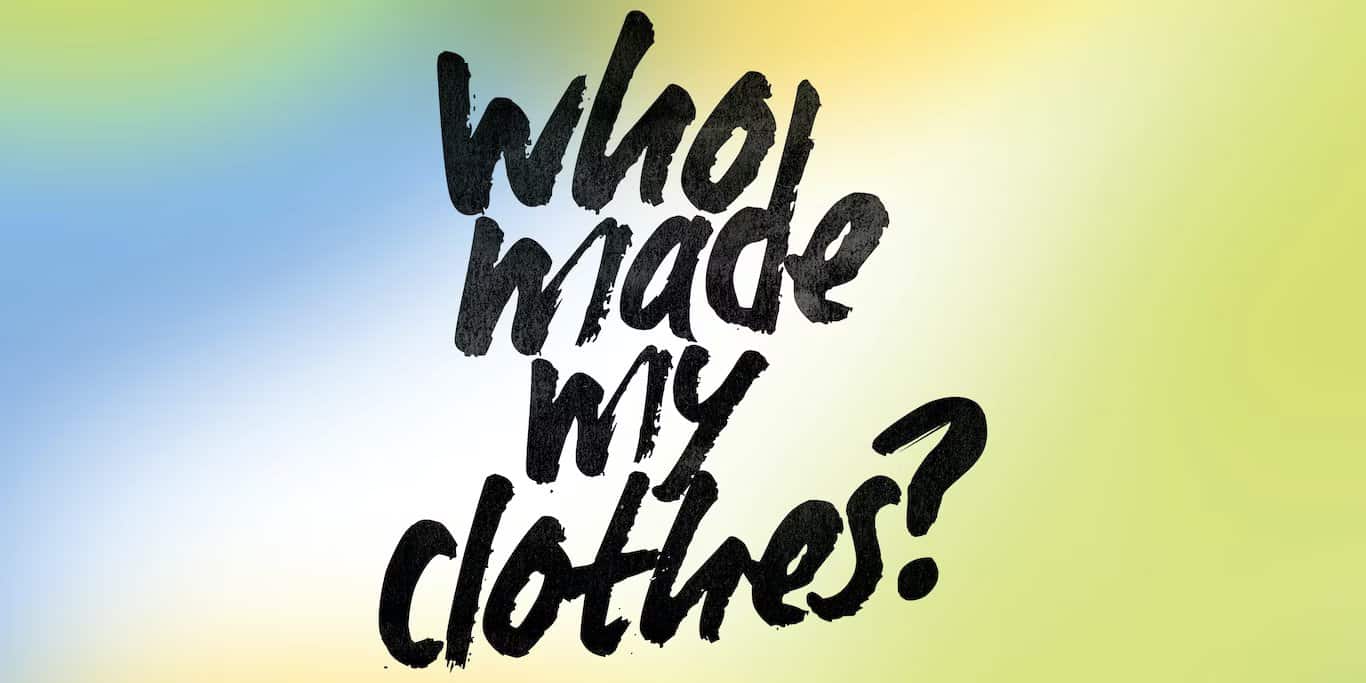This year Fashion Revolution Week takes place on 19-25 April 2021.
United with the hashtag #WhoMadeMyFabric, it is focusing on leading organisations that align with the 2021 theme of Rights, Relationships and Revolution.
This theme puts a spotlight on those who amplify unheard voices, encourage community participation and social discourse, and hold the industry to account.
What is Fashion Revolution Week?
Fashion Revolution Week is the not for profit, global movement that was started after the Rana Plaza disaster. It pushes for positive change all year long, and encourages people away from feeling guilty and towards feeling empowered to help make fashion a force for good.
On 23rd April 2013, the Rana Plaza disaster in Bangladesh became a focal point for fashion activists trying to get consumers to think about who makes our clothes and in what conditions.
Over 1,100 people – mostly women – died in the building’s collapse and it became a wake-up call for an entire generation of fashion designers, producers, journalists and lovers.
5 quick reasons why we need a fashion revolution
- Global fashion production has doubled since 2000.
- A garment is worn just 4 times on average.
- British women hoard on average just under £300 of clothing they never wear.
- 95% of clothing can’t be recycled.
- Out of 219 mainstream fashion brands only 12% could demonstrate that they paid their garment workers a fair wage.

Even though we’re all stuck at home and can’t attend the kind of events we’re used to around this great annual campaign (and we’re missing our pebblefest events!) there are still lots of ways to help Fashion Revolution Week’s campaign to raise awareness around #WhoMadeMyFabric.
5 Ways To Virtually Get Involved In Fashion Revolution Week
1. Write an email to your favourite fashion brand
Use this time to challenge and ask for transparent information when it comes to fast fashion brands and their supply chains and sustainable policies.
Fashion Revolution have simple email templates where you just fill in your details and you can also share those actions on social media as well. The more we ask, challenge and raise expectations of global brands, the faster they will have to change.
The power is in your pocket. Check out this free guide as well for lots of follow up questions around specific topics in fashion.
2. Take the #haulternative challenge
Many of us working in the ethical space, have given up shopping from fast fashion or unethical brands, once you know how much damage they’re doing, it feels uncomfortable to support them.
Want to take the #haulternative challenge?
Shout about what you’re doing to not shop new, from secondhand finds, making and mending your old clothes, clothes swaps (once we can meet again) or other DIY fashion hacks you’re working on. Share using the #haulternative tag.

3. Attend an online Fashion Revolution event
There are many, many virtual events happening to talk about ethical fashion, the current challenges and how we fix our broken global fashion system.
Find some that suit you on the Fashion Revolution calendar.
Highlights include a virtual workshop on curating a sustainable wardrobe at 11am on Saturday 24th (get tickets here). As well as panels, discussions and webinars throughout the week.
4. Support an ethical fashion brand
Life is not easy for small independent ethical fashion brands right now, many of whom can’t produce and manufacture the clothes they want to. We can help you find them.
- Find some of our favourite ethical fashion brands in our A-Z Guide to Ethical Fashion Brands on the download below,
- Sign up or keep reading our Wednesday pebble newsletter for the LUST LISTS for new ethical brands
- Check out our massive new guide to all the sustainable shoe brands.
Free A-Z Guide to Ethical Fashion
Find 26 ethical fashion brands to kickstart your ethical fashion journey.
5. Get social
From tagging Instagram posts asking brands you’re wearing #WhoMadeMyFabrics to sharing resources, talking to friends and sharing ideas of how to reduce your fast fashion consumption, we’ve all got the power to spread and share Fashion Revolution’s call to arms.
Tag us in as well and we’ll share our favourites.
Check out Fashion Revolution for assets and more info.

What is ethical fashion?
Check out our resources to learn about what is and isn’t ethical when it comes to fashion.
What’s Wrong With Fast Fashion? Our 5 Min Guide Will Catch You Up
What Makes A Fashion Brand Ethical? Here’s Everything You Need To Consider










